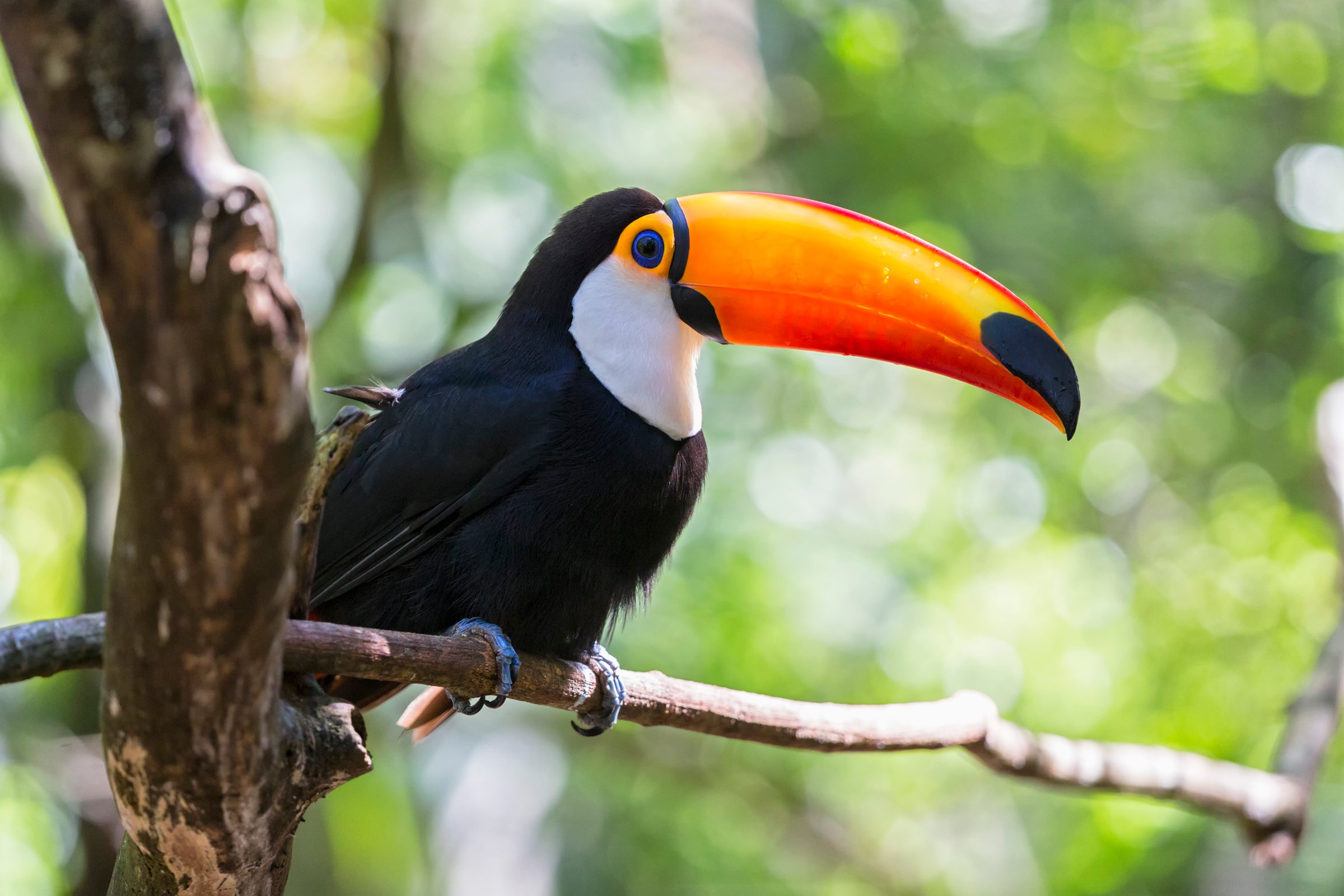
The decline in animal populations in tropical forests may play a role in accelerating climate change, according to new research.
The study, published in the journal Science Advances, shows how the loss of animals reduces the ability of forests to store carbon that would otherwise accelerate global warming. Large animals like large primates, tapirs and toucans play a key role distributing the seeds of the large trees that store the most carbon and in turn ensuring a healthy forest. The researchers note that tropical forests store 40% of the world’s carbon, but that carbon is released into the air when forests are degraded or destroyed. The decline in those animal populations thus has a tangible effect on how well their habitat can prevent carbon from reaching the atmosphere.
Deforestation has been a hot topic in discussions about how to reduce climate change, but the focus on animals has been less prominent. The new research adds relevance to campaigns to protect endangered animals in tropical forest areas where populations are on the decline due to everything from hunting to logging.
The study also adds to a growing area of research focused on how to address climate change by restoring nature.
More Must-Reads From TIME
- The 100 Most Influential People of 2024
- Coco Gauff Is Playing for Herself Now
- Scenes From Pro-Palestinian Encampments Across U.S. Universities
- 6 Compliments That Land Every Time
- If You're Dating Right Now , You're Brave: Column
- The AI That Could Heal a Divided Internet
- Fallout Is a Brilliant Model for the Future of Video Game Adaptations
- Want Weekly Recs on What to Watch, Read, and More? Sign Up for Worth Your Time
Write to Justin Worland at justin.worland@time.com